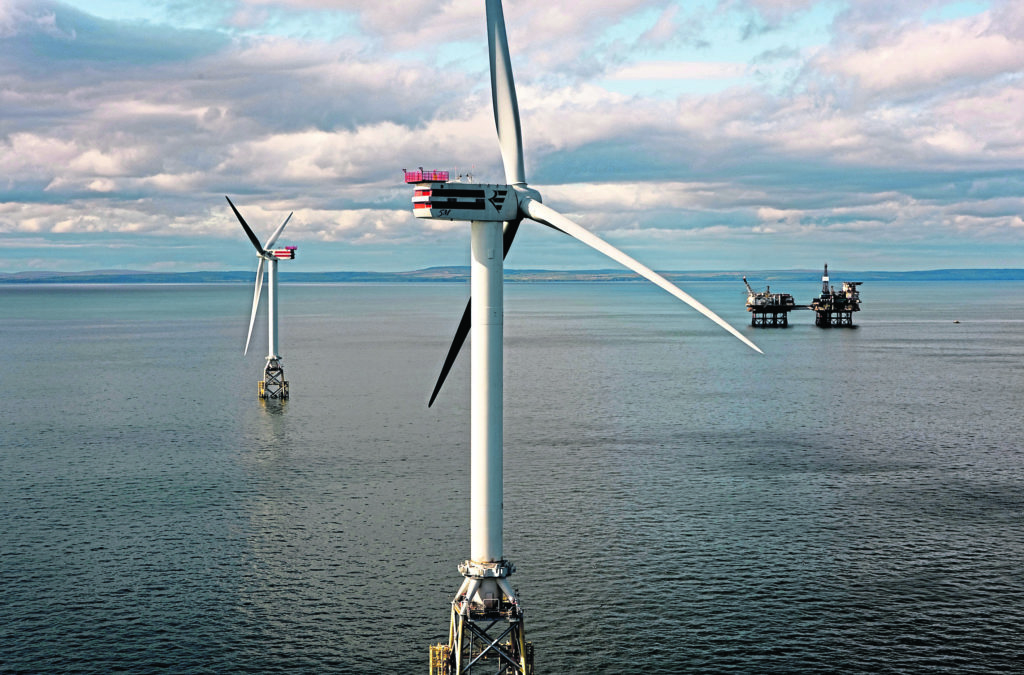
The times they are a-changing and the energy sector is changing more than most.
While oil and gas continue to serve the majority of the world’s energy needs, the requirement to move towards a lower-carbon economy is prompting a major shift in how we meet this need.
As a global industry we are already focused on reducing our own emissions and remain committed to the Paris Climate Deal, which aims to limit global climate change to two degrees Celsius above pre-industrial levels.
Offshore oil and gas operations account for just three percent of the UK’s total greenhouse gas emissions and companies have already responded to the introduction of the EU Emission Trading Scheme, which requires a certificate to be purchased for each tonne of CO2 released. This has helped reduce the industry’s total emissions by 20% in the last 10 years.
The consumption of oil and gas in the form of electricity, heat and transport services accounts for a much larger proportion of total emissions, but the make-up of primary energy has already changed considerably as renewables have increased their market share and the use of coal has plummeted. The pace of this energy change is set to increase and many of our member companies are heavily engaged in exploring how lower carbon sources of energy can be used to meet demand.
While there is particularly strong potential for the use of electricity in personal transport and light vehicles, 40% of the UK’s electricity currently comes from gas. For the time being, a lower carbon fleet can’t be done on renewables alone.
This highlights just one example of energy demand where emerging technologies and methods of supply do not yet provide an effective alternative to oil and gas. Another example lies in the energy requirements for heavy freight delivery and marine transport, which cannot at present be met from renewable or electricity-based technologies at all.
So despite the rapid development of alternatives to oil and gas, there is an ongoing gap between what society requires for continued economic development and the capacity of these technologies. Further innovation such as development of carbon capture and the use of hydrogen are key to the next phase of the energy transition.
Oil and gas businesses are embracing the opportunities the energy transition brings. You can see companies responding by diversifying their portfolios. Ultimately each company will have a different strategy and will need to decide for themselves how to respond to the energy transition. However, as an industry we have a long history of innovation and have been able to provide energy security thanks to our engineering expertise and investment in new technologies.
This focus on innovation is set to continue throughout the energy transition with future energy sources likely to require large scale distribution networks, undersea engineering, mass movement and storage of gases and liquids, along with increased demand for carbon and hydrogen.
However, with oil and gas estimated to still be providing 60% of the UK’s primary energy needs by 2040 we need pragmatism in our energy policy and regulation and stability in our fiscal environment to ensure that as much as possible comes from indigenous sources, helping to balance lower carbon with energy security and affordability.
By 2040, it is expected that the global economy will be twice as large as today and an additional 20% of primary energy will be needed. From a UK perspective, key to meeting a rising domestic energy demand is Vision 2035 – industry and government’s shared ambition to add a further generation of productive life to the UKCS basin and to double the global opportunity for the supply chain.
It should be noted that the industry’s supply chain is already providing offshore services to alternative energies, standing the sector and wider UK economy in good stead to benefit from the energy transition.
This underlines the long-standing importance of the UK oil and gas industry in the UK’s economy – it supports hundreds of thousands of skilled jobs across the UK, particularly in the north-east of Scotland, is a significant contributor to the balance of payments through export activity and provides billions of pounds each year in taxes.
Although many aspects of the energy transition are uncertain, what we do know is the need for oil and gas as an energy source will continue and the role of the UK offshore industry, its resources and expertise, will be essential as new energy systems emerge.
Will Webster, energy policy manager, Oil & Gas UK
Recommended for you
